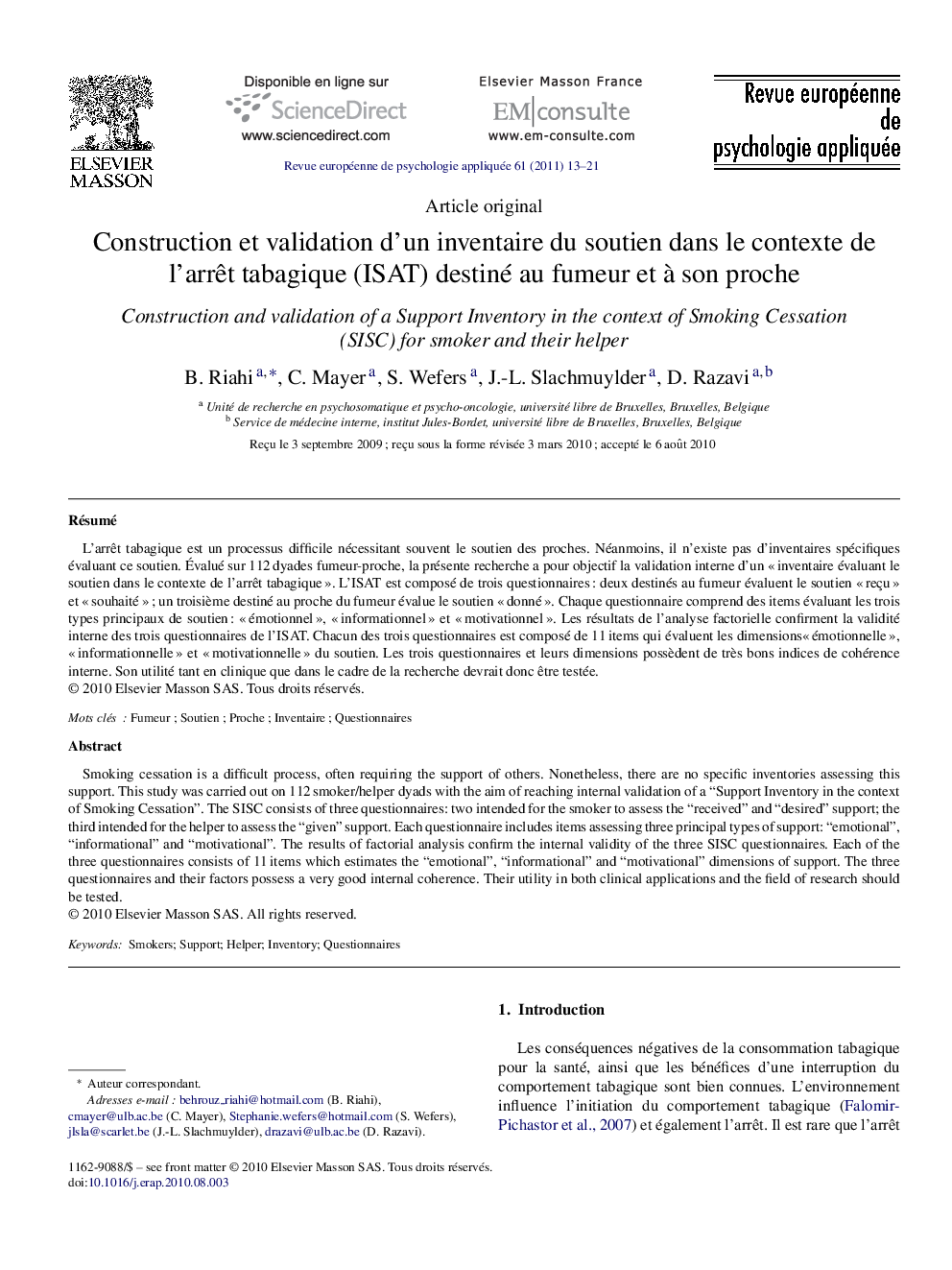| Article ID | Journal | Published Year | Pages | File Type |
|---|---|---|---|---|
| 895584 | Revue Européenne de Psychologie Appliquée/European Review of Applied Psychology | 2011 | 9 Pages |
RésuméL’arrêt tabagique est un processus difficile nécessitant souvent le soutien des proches. Néanmoins, il n’existe pas d’inventaires spécifiques évaluant ce soutien. Évalué sur 112 dyades fumeur-proche, la présente recherche a pour objectif la validation interne d’un « inventaire évaluant le soutien dans le contexte de l’arrêt tabagique ». L’ISAT est composé de trois questionnaires : deux destinés au fumeur évaluent le soutien « reçu » et « souhaité » ; un troisième destiné au proche du fumeur évalue le soutien « donné ». Chaque questionnaire comprend des items évaluant les trois types principaux de soutien : « émotionnel », « informationnel » et « motivationnel ». Les résultats de l’analyse factorielle confirment la validité interne des trois questionnaires de l’ISAT. Chacun des trois questionnaires est composé de 11 items qui évaluent les dimensions« émotionnelle », « informationnelle » et « motivationnelle » du soutien. Les trois questionnaires et leurs dimensions possèdent de très bons indices de cohérence interne. Son utilité tant en clinique que dans le cadre de la recherche devrait donc être testée.
Smoking cessation is a difficult process, often requiring the support of others. Nonetheless, there are no specific inventories assessing this support. This study was carried out on 112 smoker/helper dyads with the aim of reaching internal validation of a “Support Inventory in the context of Smoking Cessation”. The SISC consists of three questionnaires: two intended for the smoker to assess the “received” and “desired” support; the third intended for the helper to assess the “given” support. Each questionnaire includes items assessing three principal types of support: “emotional”, “informational” and “motivational”. The results of factorial analysis confirm the internal validity of the three SISC questionnaires. Each of the three questionnaires consists of 11 items which estimates the “emotional”, “informational” and “motivational” dimensions of support. The three questionnaires and their factors possess a very good internal coherence. Their utility in both clinical applications and the field of research should be tested.
